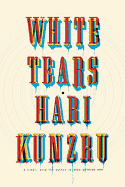 This weekend in Portland, Ore., PubWest celebrated its 40th birthday at its annual conference of independent book publishers with programming that was both educational and entertaining, and included a big tip of the hat to independent bookseller partners in cultivating the community of the book in the West.
This weekend in Portland, Ore., PubWest celebrated its 40th birthday at its annual conference of independent book publishers with programming that was both educational and entertaining, and included a big tip of the hat to independent bookseller partners in cultivating the community of the book in the West.
Presenting the group's Jack D. Rittenhouse Award to almost-fully-retired Chuck and Dee Robinson, co-founders of Village Books in Bellingham, Wash., PubWest committee member Kalen Landow called the couple the "classic example" of why the Rittenhouse award was created to honor the region's consummate book people. In addition to creating a true community center, Chuck, as president of the American Booksellers Association in the 1990s, "reminded New York that there's life west of the Hudson," Landow added.
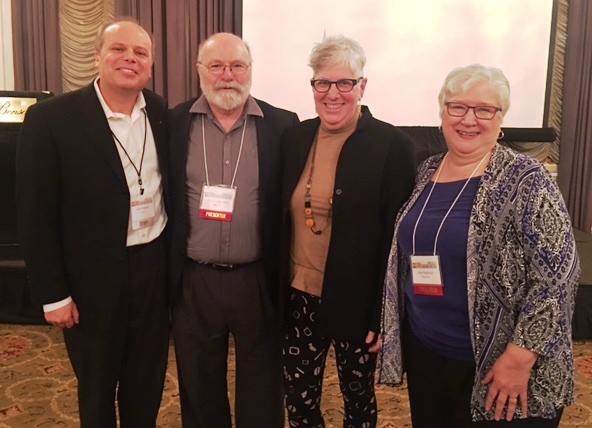 |
| PubWest executive director Kent Watson, Chuck Robinson, Miriam Sontz and Dee Robinson |
Dee Robinson said she now disagreed with the advice they got as prospective booksellers in 1979 that owning a bookstore was "not a great way to get rich, but was a great way to make a living--if you could make it work." Looking back, she said, "the riches have been amazing," especially in terms of relationships with customers, booksellers, publishers and authors. It's not every store that can boast, as Landow mentioned, that it's "a bookstore I wish I could ask to dance," as Sherman Alexie put it.
Chuck Robinson shared some bookselling history, describing how the business morphed from a retailing landscape the included indies in competition with department stores and stationers, to mall stores, then superstores, big-box stores, e-tailing and, now, Amazon with its own bricks-and-mortar stores. Despite the waves of competition, he reminded attendees that for the eighth year in a row, there has been a net gain in the number of independent bookstores--many opened by or purchased by young professionals. The key word in the phrase "independent bookseller," Chuck added, is not bookseller, and he encouraged the independent publishers in the room, whom he sees as the key to finding needed changes in a broken business model, to focus on the shared pride of independence to build relationships with their indie retail partners.
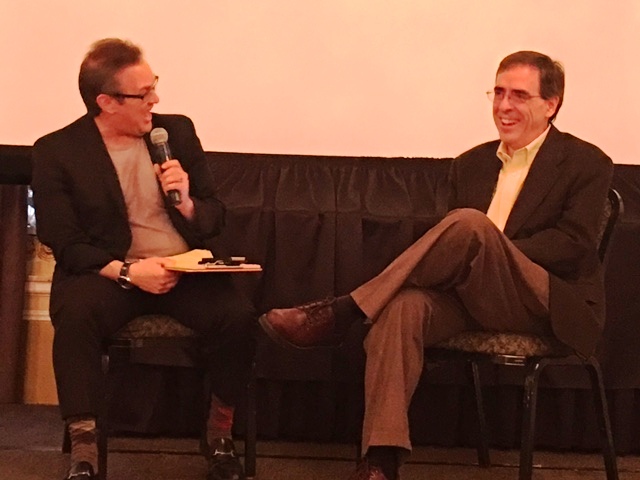 |
| The Washington Post's Ron Charles (right) cracking up author/interviewer Kevin Smokler. |
Earlier in the day, the Washington Post's Book World editor Ron Charles alternated between cracking everyone up with clips from his "Totally Hip Book Review" videos and discussing with author/interviewer Kevin Smokler (Brat Pack America: A Love Letter to '80s Teen Movies, Rare Bird Books, Oct. 2016) the serious ways the book reviewing landscape has changed. Of course, much of that discussion also led to plenty of laughter, as when Charles assured attendees that after the newspaper was acquired by Jeff Bezos, he has never heard of anyone on the editorial side hearing from Amazon about anything, to which one publisher interjected, "Neither have we!"
The final keynote was delivered by Powell's Books CEO Miriam Sontz, who was introduced by Chuck Robinson, who called her "the E.F. Hutton of bookselling," because, even though she is selective in sharing her views on the trade, "when Miriam Sontz talks, people listen."
True to form, Sontz said she most wanted to get to the q&a to hear the attendees' stories, but she shared a few of her own. In essence, she said, the experience of those who come into Powell's--just two blocks away from the PubWest conference hotel--comes down to the 30- to 45-second interaction they have most likely with a cashier, who are usually the newest members of the bookstore team. Because of that, she said, she makes sure to meet with every employee during their three-day training so that she can share the store's mission as both book lovers and a business. "We want to make books objects of desire," she said. Powell's also is proud to have been the first indie bookseller to offer its employees health benefits, and provides childcare subsidies and other things that help establish bookselling as a viable career option for its staff.
Sontz shared two recent stories from customers about why they love Powell's. The first was from an Iraq War veteran who said that after coming back from his second deployment, Powell's was the only place he felt safe. The second was from a recently divorced woman who knew she needed to "be in the world, but was not feeling of the world," who said a copy of The Art of Happiness by the Dalai Lama fell at her feet while in the store, so she sat down and read for two hours without anyone bothering her. "I never asked if she bought the book," said Sontz, but she said the woman told her she went to a Buddhist center the next day and it transformed her life.
Sontz described Walter Powell as a curmudgeon and a schmoozer who founded the store in his mid-60s, and would sit outside and cajole passersby into coming in. "His second love was buying a book for a buck and selling it for three," she said. Those two traits make up Powell's Books' DNA, she said. "You can't fake passion," she added--passion being another trait that indie booksellers and the indie publishers of PubWest have had in common for its 40 years. --Bridget Kinsella
 Zenith Bookstore, which will sell mostly used and some new books, will open in the West Duluth neighborhood of Duluth, Minn., this summer. The 1,600-square-foot shop is next to a coffee shop and will emphasize local and regional titles, literature, poetry, mysteries and gardening, among other categories.
Zenith Bookstore, which will sell mostly used and some new books, will open in the West Duluth neighborhood of Duluth, Minn., this summer. The 1,600-square-foot shop is next to a coffee shop and will emphasize local and regional titles, literature, poetry, mysteries and gardening, among other categories.


SHELFAWARENESS.1222.S1.BESTADSWEBINAR.gif)


SHELFAWARENESS.1222.T1.BESTADSWEBINAR.gif)
 Following
Following  The
The  This weekend in Portland, Ore.,
This weekend in Portland, Ore., 

 At the Winter Institute 2017 panel "Finance: Securing Capital," moderator Bradley Graham of
At the Winter Institute 2017 panel "Finance: Securing Capital," moderator Bradley Graham of 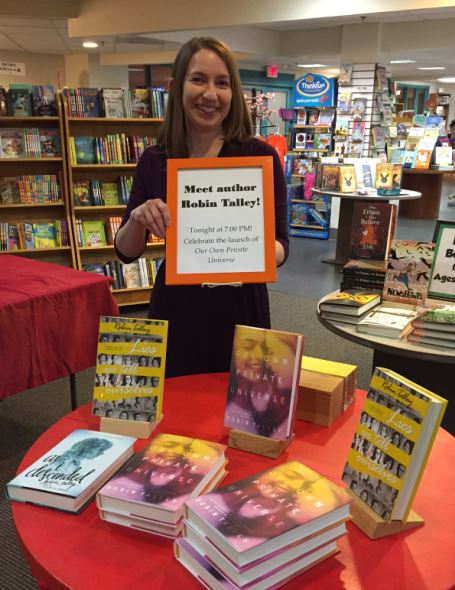 Author Robin Talley launched her fourth book for LGBTQ+ teens, Our Own Private Universe (HarlequinTeen), at
Author Robin Talley launched her fourth book for LGBTQ+ teens, Our Own Private Universe (HarlequinTeen), at 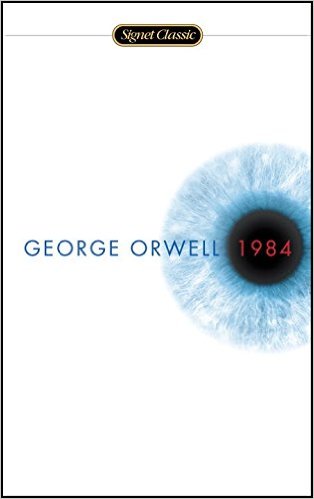
 The Great Wall of China and the Salton Sea: Monuments, Missteps, and the Audacity of Ambition
The Great Wall of China and the Salton Sea: Monuments, Missteps, and the Audacity of Ambition The fabric of reality is by no means fixed when Hari Kunzru is in charge. His previous novel, Gods Without Men, unravels the thread of time after an autistic boy goes missing in the Mojave Desert--and out fall a cult leader, alien abductees, a washed-up rock star and Coyote, the trickster. With White Tears, Kunzru bends time again when two audiophiles happen upon a storied old blues track.
The fabric of reality is by no means fixed when Hari Kunzru is in charge. His previous novel, Gods Without Men, unravels the thread of time after an autistic boy goes missing in the Mojave Desert--and out fall a cult leader, alien abductees, a washed-up rock star and Coyote, the trickster. With White Tears, Kunzru bends time again when two audiophiles happen upon a storied old blues track.